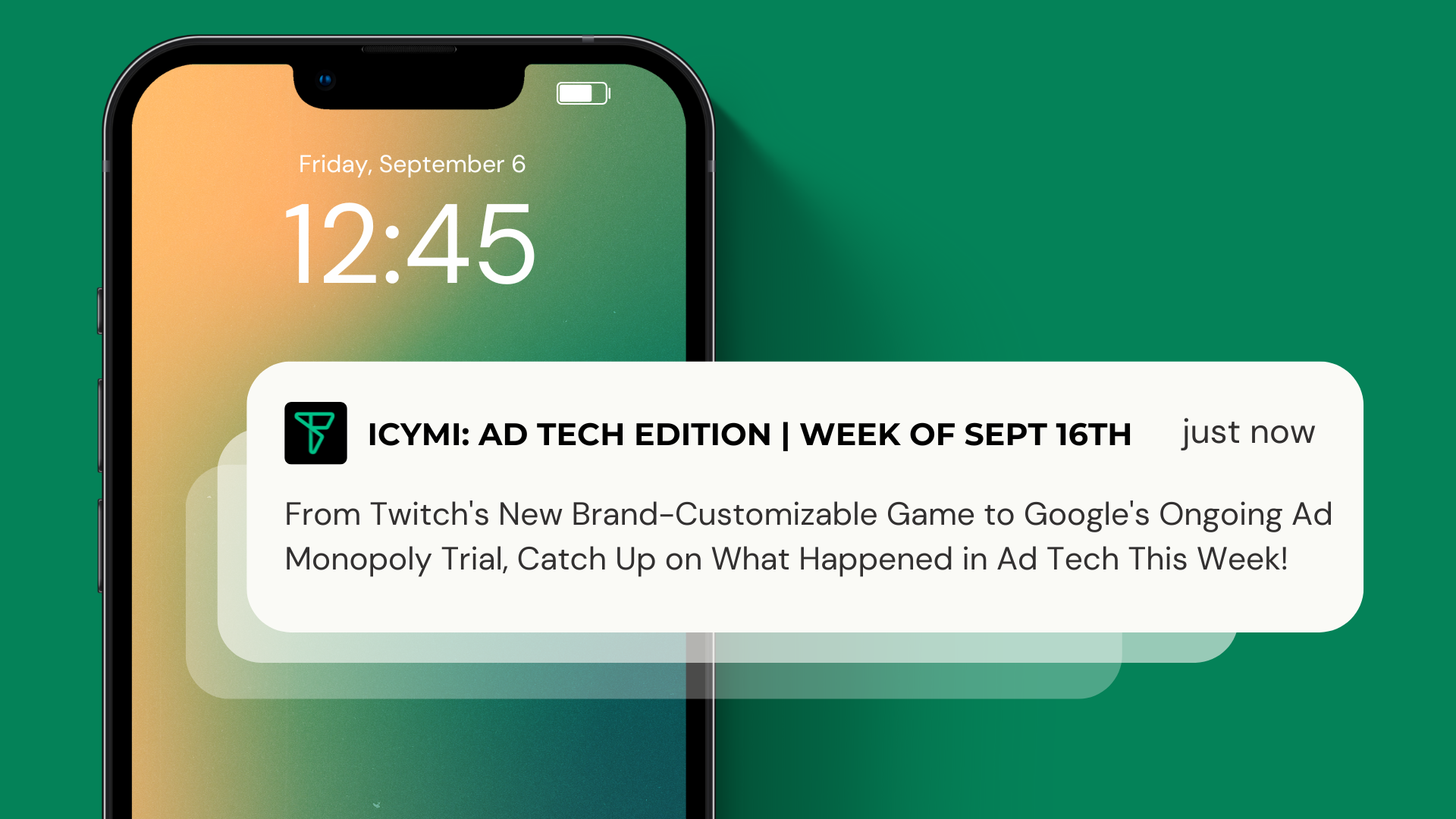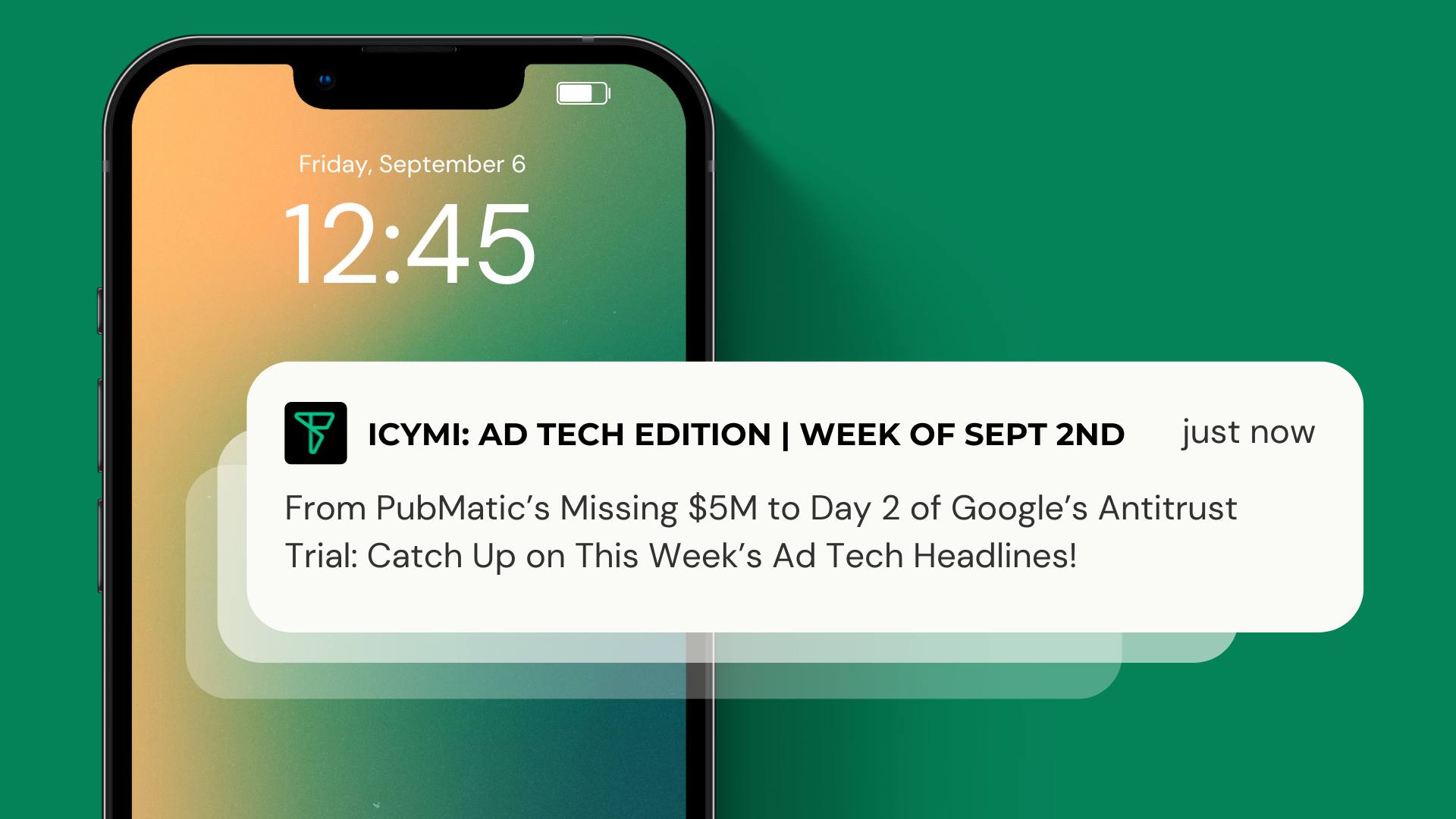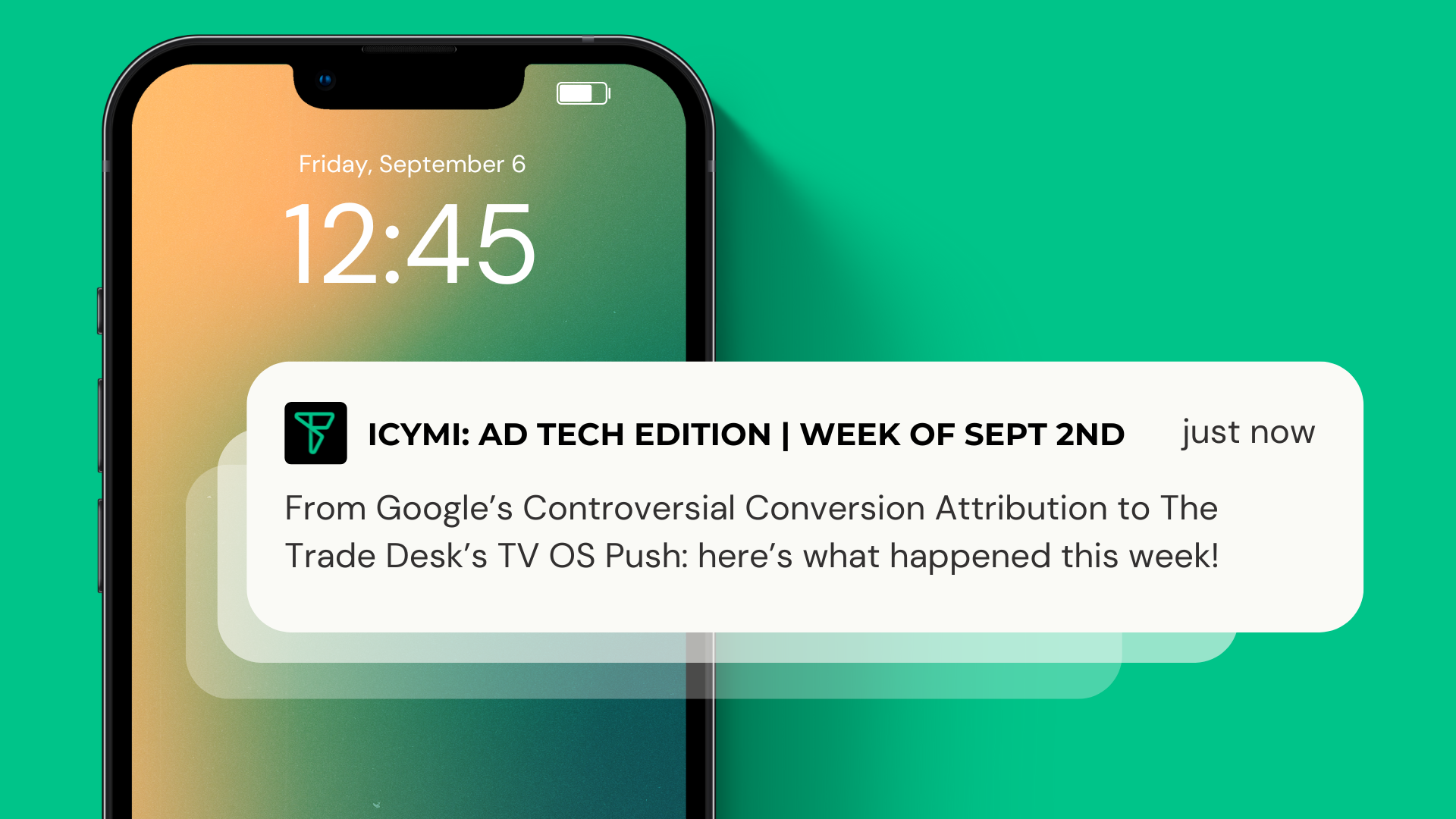Bits and Bobs from around the industry:
- MediaMath To File For Bankruptcy After Acquisition Talks Fall Apart | AdExchanger
- Google violated its standards in ad deals, research finds | Wall Street Journal
- Transparency and brand safety on Google Video Partners | Google Ads and Commerce Blog
- Why aren’t publishers concerned about Supply Path Optimization (SPO)? | AdMonsters
- Google to block news in Canada over law on paying publishers | Reuters
MediaMath To File For Bankruptcy After Acquisition Talks Fall Apart | AdExchanger
MediaMath, a demand-side platform (DSP) known for launching the first-ever DSP, is facing foreclosure and bankruptcy. The company raised $600 million since its founding in 2007 but encountered financial difficulties. Despite attempts to find potential acquirers, deals fell through, leading to insolvency. As a result, MediaMath will likely file for Chapter 7 bankruptcy, which involves liquidating the company’s assets to pay its obligations. The majority of the company’s 300+ employees will lose their jobs, with a few remaining for essential tasks during the bankruptcy process.
Google violated its standards in ad deals, research finds | Wall Street Journal
New research suggests that Google violated its own standards for placing video ads on external websites, raising concerns about the transparency of its online ad business. While Google’s YouTube runs ads on its own platform, it also brokers the placement of video ads on other sites through Google Video Partners, promising high-quality placements with the audio on and no skipping charges. However, Adalytics, a firm that analyzes brand ad placements online, found that Google violates these standards about 80% of the time. The violations include placing ads on small, muted videos off to the side of a page and on sites not meeting Google’s monetization standards. Advertisers expressed concerns and demanded refunds for invalid placements, but Google defended its brand safety efforts and claimed inaccuracies in the report. The opaqueness of the digital ad market makes it difficult for brands to ensure they are getting what they paid for, and the research highlights questions about how Google vets its network sites.
Transparency and brand safety on Google Video Partners | Google Ads and Commerce Blog
In this blog post, Google responds to a recent third-party report that raised concerns about the Google Video Partner (GVP) network’s transparency and brand safety. Google clarifies that GVP is meant to complement YouTube ad campaigns, and the majority of video ad campaigns still run on YouTube. Advertisers have control over where their ads appear and can opt-out of running ads on third-party sites if they wish. Google shares real-time campaign reporting, allowing advertisers to monitor their ad placements and adjust settings accordingly.
Google states that over 90% of ads on GVP are viewable, exceeding industry norms. They use real-time ad quality signals to determine ad visibility, ensuring advertisers only pay for ads that are viewed. The company enforces strict policies for all third-party publishers, including GVP, to prevent disruptive and deceptive ad-serving practices. In 2022, Google stopped serving ads on over 143,000 sites for policy violations. To ensure ad validity, Google partners with outside organizations like DoubleVerify, Integral Ad Science, and Moat for third-party verification.
Overall, Google emphasizes its commitment to brand safety and transparent ad placements within the Google Video Partner network.
Why aren’t publishers concerned about Supply Path Optimization (SPO)? | AdMonsters
Emodo conducted a survey of advertisers and publishers, revealing that supply path optimization (SPO) is not a high priority for most publishers, with only 30% considering it important. Some believe SPO is more of a concern for buyers than publishers. However, promoting SPO could benefit publishers by providing more direct access to insights into demand for their inventory and improving transparency in the bidding process. Some publishers may not be concerned about SPO because it primarily targets low-quality publishers engaging in excessive concurrent auctions.
Scott Messer, an advocate of curated marketplaces, suggests that reputable publishers with genuine value propositions have little need for SPO tactics, as they are moving towards curated marketplaces that eliminate low-quality publishers. However, the survey data showed that large publishers are more likely than small publishers to have numerous monetization partners, raising questions about the actual impact of SPO on reputable publishers.
Another reason why publishers may not prioritize SPO is the lack of resources to analyze programmatic partners and make meaningful changes to their programmatic stacks. Terry Guyton-Bradley warns that SPO’s benefits for publishers are still a hypothesis and may require real data to back up claims.
Despite SPO not ranking high on publishers’ priority lists, Emodo, a company focused on advertising, considers SPO a significant concern. They view SPO as a means of eliminating redundancy and offering unique value to provide the most direct route to that value. Emodo is dedicated to creating and optimizing curated deals to address SPO concerns for buyers and publishers.
Google to block news in Canada over law on paying publishers | Reuters
Google announced its plan to block Canadian news on its platform in Canada, following Facebook’s similar announcement, as a response to a new law requiring payments to local news publishers. The law, known as Bill C-18 or the Online News Act, aims to allow news businesses to recover financial losses resulting from Facebook and Google gaining a larger share of the online advertising market.
The legislation could potentially provide news businesses with about C$330 million per year from deals mandated under the law. However, both Facebook and Google argued that the proposals were unsustainable for their businesses and signaled that they might end news availability in Canada unless the act was amended.
The Canadian government has resisted making changes to the law, leading to Google’s decision to remove links to Canadian news from search results and other products in Canada. They will also end their News Showcase program in the country, affecting 150 news publications with whom Google had agreements. Google’s president of global affairs stated that they find the law unworkable and that the regulatory process is unlikely to address the structural issues with the legislation.
The law requires online platforms to negotiate with news publishers and pay for their content, similar to a law in Australia in 2021. Google and Facebook made threats to curtail their services in Australia but reached deals with media companies after the legislation was amended. Google argues that Canada’s law is broader than those in Australia and Europe, as it puts a price on news story links displayed in search results and could apply to outlets that do not produce news according to journalistic standards.





